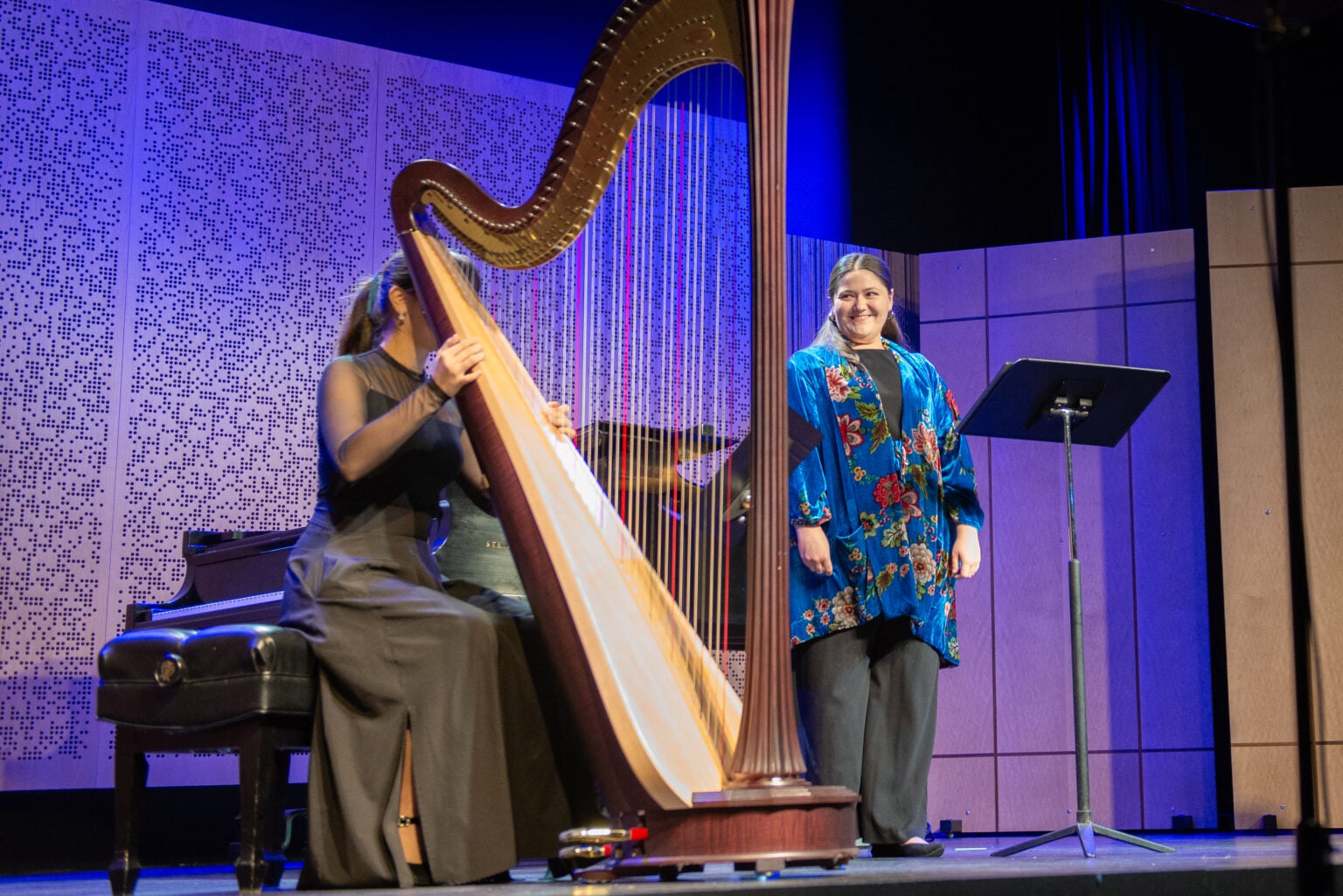
Fall Undergraduate Composers - Children of Enlightenment
UCLA Herb Alpert School of Music
Tuesday November 12, 2024
Lani Hall
8:00pm
Composers
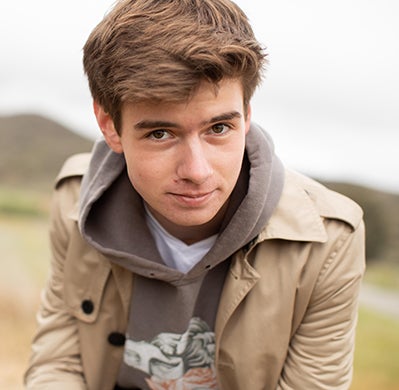
Aidan Vass
See Bio
Aidan Vass (b. 2003) is an American composer. He is a three-time YoungArts winner for classical composition, a finalist for the ASCAP Morton Gould Award, and a first place winner in the MTAC Composers Today competition. He was a Nancy and Barry Sanders’ Composer Fellow with the Los Angeles Philharmonic from 2018-2021. His composition mentors include Andrew Norman, Ted Hearne, Sir James MacMillan, Brett Banducci, David Lefkowitz, and Kay Rhie. Vass has written music for ensembles including the American Youth Symphony, Los Angeles Philharmonic, Los Angeles Master Chorale, Seraphour, Nu Deco Ensemble, Sandbox Percussion, and Tallgrass Chamber Choir, and he has independently released a catalog of music including a debut solo piano album (8 Sketches for Piano, 2021). He is currently published with Hal Leonard and Santa Barbara Music Publishing, and his music has been featured on publications such as The Violin Channel, LA Opus, Planet Hugill, and others.
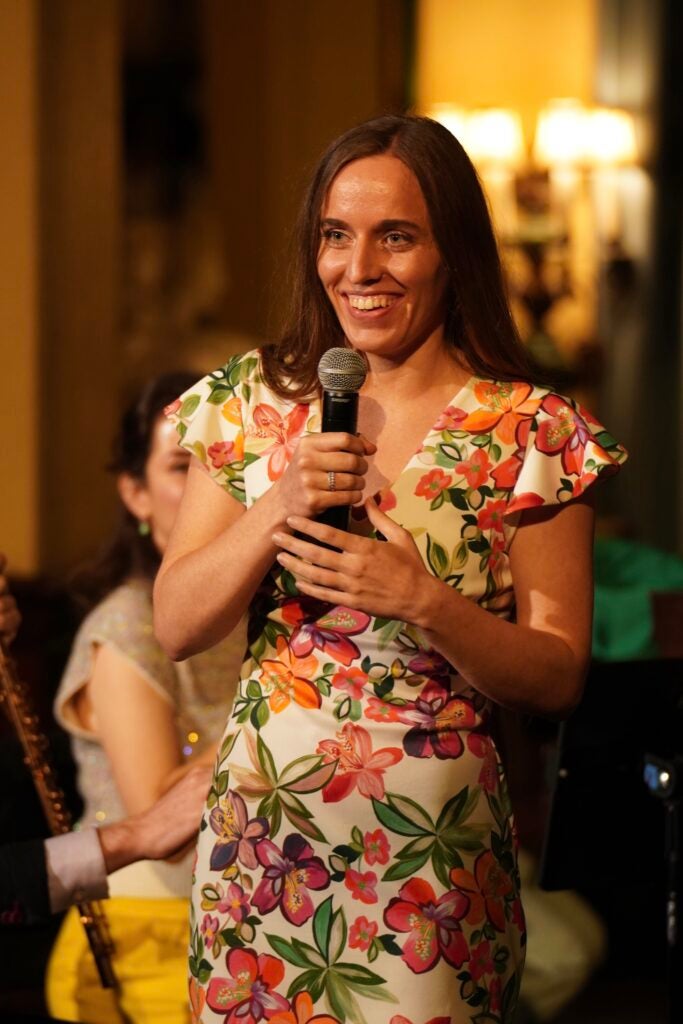
Celina Anna Kintscher
See Bio
Celina Anna Kintscher is a German-Austrian composer whose artistry is shaped by her life on three continents, having lived in Germany, South Africa, and the U.S. Her compositions have been performed by Orchestra Arturo Toscanini, Orchestra Senzaspine, Los Angeles Brass Alliances, Salastina, Carpe Diem String Quartet, soprano singers Hila Plitmann and Tony Arnold, among others. She is a 2022 and 2023 ASCAP Morton Gould Young Composer Award Finalist. As a composer and concert host who organizes players and venues for new works frequently, Kintscher maintains a dual responsibility to the integrity of past works and the innovation of new music. She is faculty at the Los Angeles Philharmonic’s Composer Fellowship Program and lectures at the Los Angeles Philharmonic with Upbeat Live Pre-Concert talks.
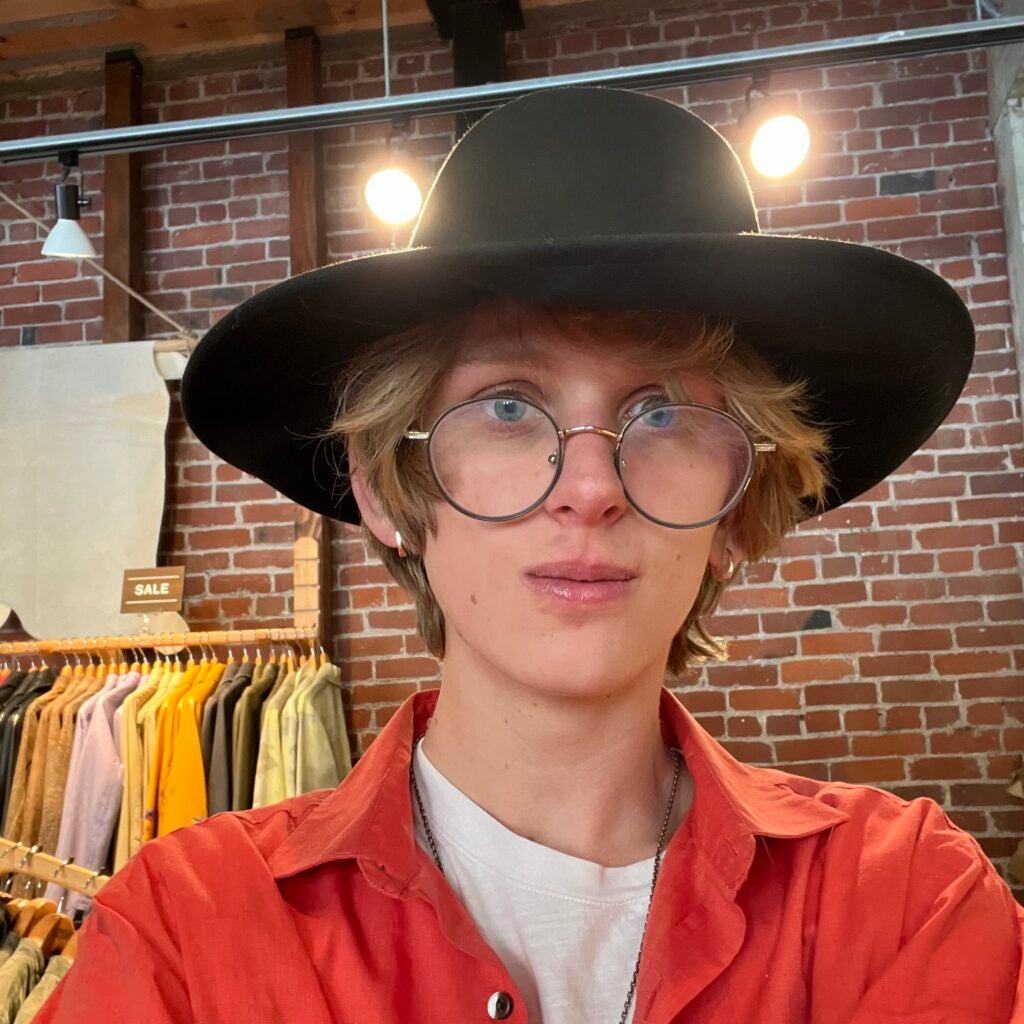
JP Hicks
See Bio
J.P. Hicks (b. 2003) is currently a third-year undergraduate at UCLA, pursuing a BA in Music Composition with a minor in Philosophy. Born and raised in San Francisco, he is a longtime member of the SF Art and Film community, where he grew up immersed in various new music, cinema, theater, and performance art. His influences draw equally from philosophers and other art forms as they do music, including George Bataille, Agnes Varda, and Cy Twombly, alongside Elliott Carter, Nancarrow, and Bach. This is all he cared to share for this bio, but he insists that there is more to his music than the 109 words seen here.
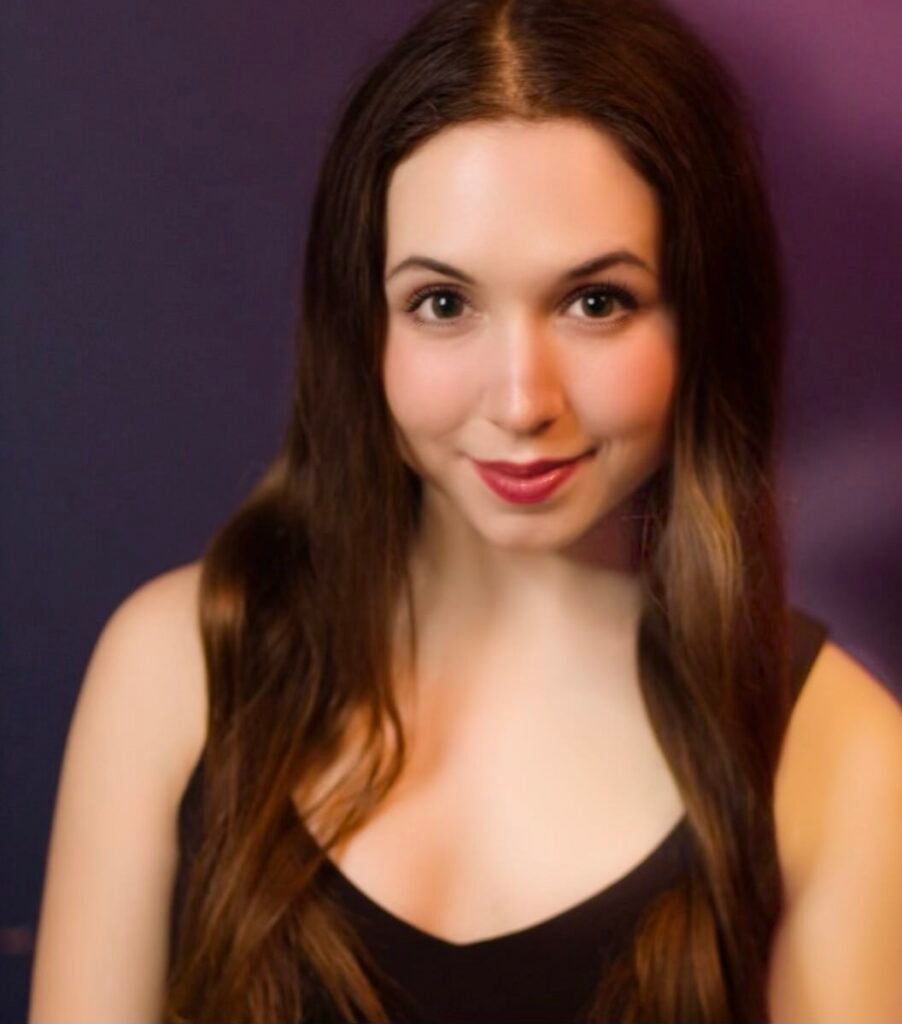
Mia Ruhman
See Bio
Mia Ruhman, b.2003, is a Los Angeles based composer, soprano, and actress. A fourth year music composition undergraduate at UCLA, Ruhman also studies classical voice with Professor Vladimir Chernov. Ruhman works for the National Children’s Chorus as a vocal mentor and for the Palisades Methodist Church as soprano section leader. Ruhman was a 2019-21 fellow in the LA Phil’s composer fellowship program, the LA Phil YOLA Sue Tsao composer fellow in 2020, the winner of a global music award (2024), and served on the speaking panel of the 77th National League of American Orchestra conference. Her compositions have been conducted by Gustavo Dudamel and Grant Gershon, and performed by the LA Phil, the National Children’s Chorus, Seraphour, Hub New Music and the Youth Orchestra of Los Angeles. Ruhman is grateful to the composition faculty for their endless support, and to her peers for sharing their boundless friendship and talent.
Repertoire (not performance order)
Torso of Venus, Piano, ca. 1886-present
JP Hicks
Ryan Jia
Three Dialogues' for Soprano and Harp
Naveed Perkins (b. 2001)
I. Stay
II. When Day Breaks
III. Forevermore
Yekaterina Lynch (Soprano) and Alaina Stark (Harp)
Children of the Enlightenment
Mia Ruhman (b. 2003)
"Children of the Enlightenment" from "Nannerl"
Mia Ruhman
Ross Chitwood
Dylan Price
Sinking Stones
Celina Anna Kintscher (b. 1998)
Adam Zilberman, clarinet
Sydney Wang, piano
Breaths
Celina Anna Kintscher (b. 1998)
I.
II.
III.
Windswept Voices
Sequoia
Aidan Vass
David Hernandez
Travel
Sydney Wang (b. 2002)
Yekaterina Lynch, soprano
Sydney Wang, piano
String Quartet No. 1 in E Minor
Ariel Rbibo
I. Andante
II. Energico
III. Comodo
IV. Finale
Medtner Quartet
Program Notes
Torso of Venus, Piano, ca. 1886-present
This piece, to me, begins before the first notes on the piano are heard, and continues long after they end. The material begs for much more than I have given it here, though I don’t think it is incomplete, per se. It is, however, much less ‘digested’ than I’d care to admit, and while the title—Torso of Venus—lends it a certain corporeal and/or spatial quality, the music tends more toward linearity (the work could just as easily be titled something like “Piano Music”—which is still an option!). Interestingly, I think this piece falls somewhere in between Torso of Venus and Piano Music in how we perceive it, though the ambiguity invites extensive exploration in the future, which, in itself, is quite exciting.
Three Dialogues' for Soprano and Harp
The piece ‘Three Dialogues’ was written with the intent of a monologue disguised as a dialogue to another. When this piece began, I assembled three poems which are separated by the time they were written and related to each other only by their intention. Each movement can be performed individually, but for the intended effect and meaning of the piece to be felt, the piece in its entirety should be performed as written. It is my intention to convey a dialogue covering love, introspection, and the value of self-expression, and I encourage all to make their own interpretation of the work as I view all interpretations to be correct.
Children of the Enlightenment
This piece highlights one of the final dramatic peaks present in my original musical, “Nannerl.” Nannerl has the opportunity to move to Vienna with her lover, Franz, and to pursue a career as a teacher and performer alongside her brother Wolfgang. Her father, Leopold, feels abandoned and betrayed by his children. He sings a dramatic rage aria, declaring that Nannerl must choose between risking her life and societal standing in Vienna, or living securely in Salzburg in the life he’s made for her. Leopold's rage is put on full display, yet we also witness his genuine love for his daughter and his driving determination to protect her at all costs. Finally at her breaking point, Nannerl grapples with excessive guilt- trying to balance her own ambitions and dreams with her deeply engrained sense of duty toward her family. Please keep an eye out for audition announcements coming soon!
Sinking Stones
"Sinking Stones" captures the introspective experience of loss and the quiet, inevitable descent of grief. Inspired by the image of stones slowly sinking into deep, dark waters, the piece explores the weight of memory and the sorrow of saying goodbye to someone who was once an anchor in life. "Sinking Stones" serves as a meditation on loss, a way to honor memories, and a reminder that even when they are no longer seen, loved ones remain with us, deeply and eternally.
Breaths
The fundamental essence of life itself is the act of breathing. Designed to showcase the woodwinds' organic connection to breath, the piece explores the sounds, rhythms, and emotions evoked by this simple, yet profound action.
Sequoia
Sequoia, like much of my other music, ponders the idea of how we represent shape and contour in music. Sequoia trees balance two perspectives - one can look up to the top of the tree and see a towering, formidable sight, or enter the spaces in between the roots of the tree and find a space that feels super intimate. These feelings come from our perspective of contour in nature and offer a fascinating angle to explore in music.
Travel
"Travel" – Edna St. Vincent Millay (1892-1950)
The railroad track is miles away,
And the day is loud with voices speaking,
Yet there isn't a train goes by all day
But I hear its whistle shrieking.
All night there isn't a train goes by,
Though the night is still for sleep and dreaming,
But I see its cinders red on the sky,
And hear its engine steaming.
My heart is warm with the friends I make,
And better friends I'll not be knowing;
Yet there isn't a train I wouldn't take,
No matter where it's going.
String Quartet No. 1 in E Minor
Written in January 2023, this string quartet was based on sketch I wrote nearly 2 years prior. The whole work is shaped around the primary motif, a four-note figure, which is repeated and developed extensively throughout each movement. The work oscillates between romantic, satirical, energetic, and melancholic atmospheres, each mood facilitated through different uses of the primary motif.